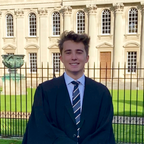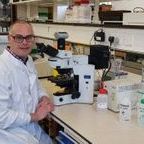Speakers

Amanda Helsgrave
Sofia Cerdeira

Cameron Hall

David Gaze

3pm – 5pm GMT, 8 November 2022 ‐ 2 hours
Science & Education
Room: Elizabeth Room
Amanda Helsgrave 15:00 – 15:30 Blood biomarkers – what can they tell us about the brain?
Sofia Cerdeira 15:30 – 16:00 Preeclampsia Biomarkers
Cameron Hall 16:00 – 16:30 Biomarkers of Traumatic Brain Injury
Doris-Ann Williams 16:30 – 17:00





Senior Research Fellow
I gained my PhD in neurological studies from UCL in 2005 whilst working as a technician in the Department of Neurochemistry at the Institute of Neurology. After post-docs investigating kinases and metabolism, and a rare mutation causing hyperinsulinaemic hypoglycemia in infants, I returned to the ION in 2012 to take up a position setting up research into biomarkers of neurodegenerative diseases. Over the last 10 years I have been instrumental in the set up and management of what is now the UKDRI Fluid Biomarker Laboratory, developing new assays and collaborating widely, utilising super sensitive immunoassays to push forward work in this area. I have, along with Prof Henrik Zetterberg (University of Gothenburg/UCL joint appointment) written numerous grants to bring new technology into the lab in order that we can benefit the neurodegenerative research community and utilise the ability of measuring brain relevant proteins in easily accessible body fluids such as blood plasma and serum. My latest venture along with Prof Zetterberg is to bring funds to the laboratory to launch the Biomarker Factory to enable large cohort measurements working alongside clinical colleagues, and the discovery and validation of novel biomarkers that will be essential to monitor and assess future disease modifying therapies.

MRC DTP PhD Candidate
Cameron is a second year PhD student at the University of Cambridge. His research focuses on the investigation of biomarkers of traumatic brain injury in vivo and in vitro. This includes protein markers of neuronal and axonal injury, as well as neuroinflammatory response and small-molecule biomarkers. His current research involves the investigation of response to induced metabolic dysfunction in cultured induced human neurons and astrocytes, using this stress model to explore potential therapeutic agents. Whilst future endeavours include the artificial ageing of the cell cultures, co-culturing with supportive glia, and genetic sequencing, with a view to investigating links to neurodegenerative diseases.